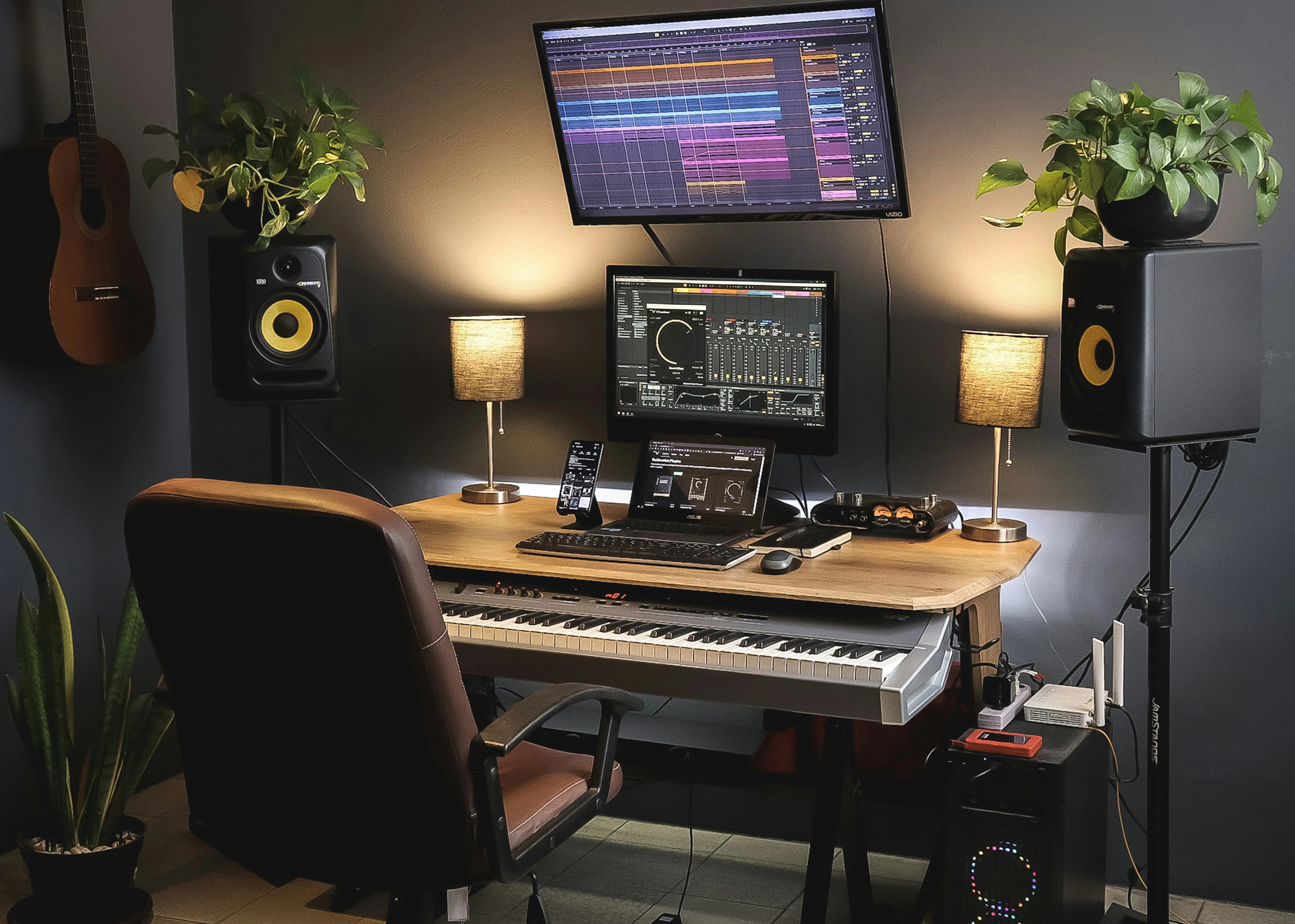This article has been put together by Shourya Malhotra and CA Ashwin Nath.
In India, musicians can register under various legal structures, from a simple sole proprietorship to a formal limited liability partnership (LLP) or company. Here’s a detailed look at each structure and its benefits and drawbacks:
SOLE PROPREITORSHIP
- A sole proprietorship is the simplest and most straightforward business structure. For solo artists, this means you’re operating as an individual and don’t need formal registration to get started. You’ll only need a PAN and Aadhar for identification. GST registration is mandatory only if your revenue exceeds ₹20 lakh (₹10 lakh for specific regions).
- Advantages:
Simple Setup: It’s the easiest way to start working as a musician in India, requiring minimal documentation and no formal business registration.
Full Control: You, as the artist, have complete control over the business, including decision-making and profits.
Low Compliance: There’s less paperwork involved, and you only need to file personal income tax returns. This makes it a low-maintenance structure for early-stage musicians.
Cost-Effective: Minimal upfront costs for registration or maintenance. - Caveats:
Unlimited Liability: The biggest downside is personal liability. If the business faces debts or legal issues, your personal assets are at risk.
Limited Growth Potential: A sole proprietorship may not be scalable. If you want to expand into a label or bigger business operations, you’ll likely need to switch to a more formal structure.
No Legal Protection: There’s no clear legal separation between you and the business. In case of disputes or legal challenges, your personal reputation and assets could be compromised.
PARTNERSHIP (FOR BANDS/ GROUPS)
- A partnership involves two or more individuals pooling their resources to run a business together. You can register the partnership with the Registrar of Firms (optional, but highly recommended). Partnerships require a PAN, TAN (for tax deduction), and GST registration if applicable.
- Advantages:
Shared Responsibility & Transparency: This structure allows you and your bandmates to share profits, losses, and responsibilities in a transparent way. It’s especially useful for bands, where managing costs and sharing profits are important.
Flexibility: Partnerships can be converted to a company or LLP if required in the future. This makes it easy to scale operations.
No Double Taxation: Profits of the partnership are taxed in the hands of the partnership. Meaning the partners itself dont face taxation on their share of profits of the partnership. This simplifies your financial reporting.
More Credibility: Even though a partnership is not a separate legal entity, it has enganced credibility compared to a sole proprietorship due to the availability of records in its own name (PAN, Gst Registration etc.). In some cases, this can be more attractive to investors or collaborators. - Caveats:
Unlimited Liability: Just like a sole proprietorship, the partners are personally liable for any debts or legal issues faced by the business. This can be a significant risk for high-value projects.
Potential for Disputes: Without clear agreements, disputes between partners over profits, creative control, or roles can damage the relationship or even break the partnership.
Lack of Continuity: If one partner decides to leave or passes away, the partnership may need to be dissolved, which can cause business disruption.
LIMITED LIABILITY PARTNERSHIP (LLP) OR PRIVATE LIMITED COMPANY (FOR LARGER VENTURES)
- Both LLPs and Private Limited Companies provide limited liability protection, meaning the personal assets of the owners are safeguarded. These structures are ideal for musicians venturing into larger businesses like studios, record labels, or event management. They involve a formal registration process with the Ministry of Corporate Affairs.
- Advantages:
Artificial Jurisdical Person: Totally separate entity from the people who constitute it. The law for all purposes treats it as if its a separate person who can be sued, enter into contracts etc. This reduces risk of the promoters and members.
Limited Liability: The biggest advantage of forming an LLP or private limited company is limited liability. Your personal assets (e.g., home, car) are protected in case the business faces financial or legal challenges.
Enhanced Credibility: These structures are legally recognized and convey professionalism to partners, investors, and clients. This can be crucial when negotiating with venues, sponsors, or labels.
Easier to Raise Funds: These structures are more attractive to investors, which is key for scaling up operations, starting a label, or branching into other business areas.
Succession Planning: A company or LLP has greater continuity. If a member leaves or passes away, the business can continue without major disruptions. - Caveats:
Higher Compliance: LLPs and companies face rigorous compliance requirements, such as filing annual returns, audits, and maintaining statutory records. This involves time and money.
Complex Setup: The registration process can be lengthy and requires legal assistance to ensure everything is set up correctly.
Ongoing Costs: There are higher administrative and operational costs, including accounting, legal fees, and government filings, which may not be affordable for emerging musicians.
TAKING ADVANTAGE OF THE MSME SCHEME TO GET FORMAL REGISTRATION
- Udyam Registration (also known as MSME Registration) is a government registration process for small/medium businesses and enterprises. With this registration, a recognition certificate and a unique number are provided by the government to identify and regard the entity’s business as per government guidelines.
- This scheme is launched by the government of India with the aim of providing maximum benefits to medium or small-scale businesses or industries who are registered via MSME through their Aadhar Card Number. There are compulsory guidelines for enterprises or entities whether they are a sole proprietor, LLP, or Private limited companies.
- Advantages:
Get a loan at lower interest rates
Get various kinds of tax rebates and exemptions
Obtain licenses, approvals, and registrations easily.
MSME registration boosts your business’s credibility, especially when dealing with vendors, distributors, or partners.
If you are an independent musician, an Udham Registration is mandatory to register as a publisher on IPRS. - Caveats:
Freelancers who earn less than 5 lakhs may find their GST filing or taxes costly after registering under MSME law.
HOW TO REGISTER FOR THE UDYAM SCHEME?
The process of Udyam Registration is quite easy and the process is also free of cost. So, you can go for Udyam registration without much consideration.
- Step 1: Visit the Official Udyam Website (https://udyamregistration.gov.in/) and click on the “For new Entrepreneurs who are not registered yet as MSME” option.
- Step 2: Enter Your Personal Information – name and 12-digit unique Aadhar number. Click on “Validate & Generate OTP.” You will receive an OTP on your registered mobile number. Enter the OTP in the required field.
- Step 3: Choose the type of organization, enter your PAN no and click on validate.
- Step 4: Enter Correspondence Details like the postal address of the company/enterprise/entity, info about your company’s district, pin code, state, email address, and mobile number.
- Step 5: Enter the bank account number along with the IFSC code of the concerned branch.
- Step 6: Enter your business details such as the total number of employees and the National Industry Classification (NIC) Code for Activities. Choose one under ‘Creative,Arts & Entertainment Activities’
- Step 7: Choose the district industry center from the provided drop-down list, accept the declaration, and click on “Submit and Get final OTP”
- Step 8: Enter the OTP received on mobile and click on the “Final Submit” button. Soon you submit the application, and you will receive a registration number. And after verification of your information, you will receive an E-registration document in your e-mail.
CONCLUSION
Choosing the right registration structure is vital for managing your music career, whether you’re a solo artist or part of a band. From the simplicity of a sole proprietorship to the formalities of a company or LLP, each option has its own pros and cons. Additionally, don’t overlook government schemes like MSME for additional financial support. Choose wisely based on your current needs and long-term goals to ensure smooth business operations and growth!




























